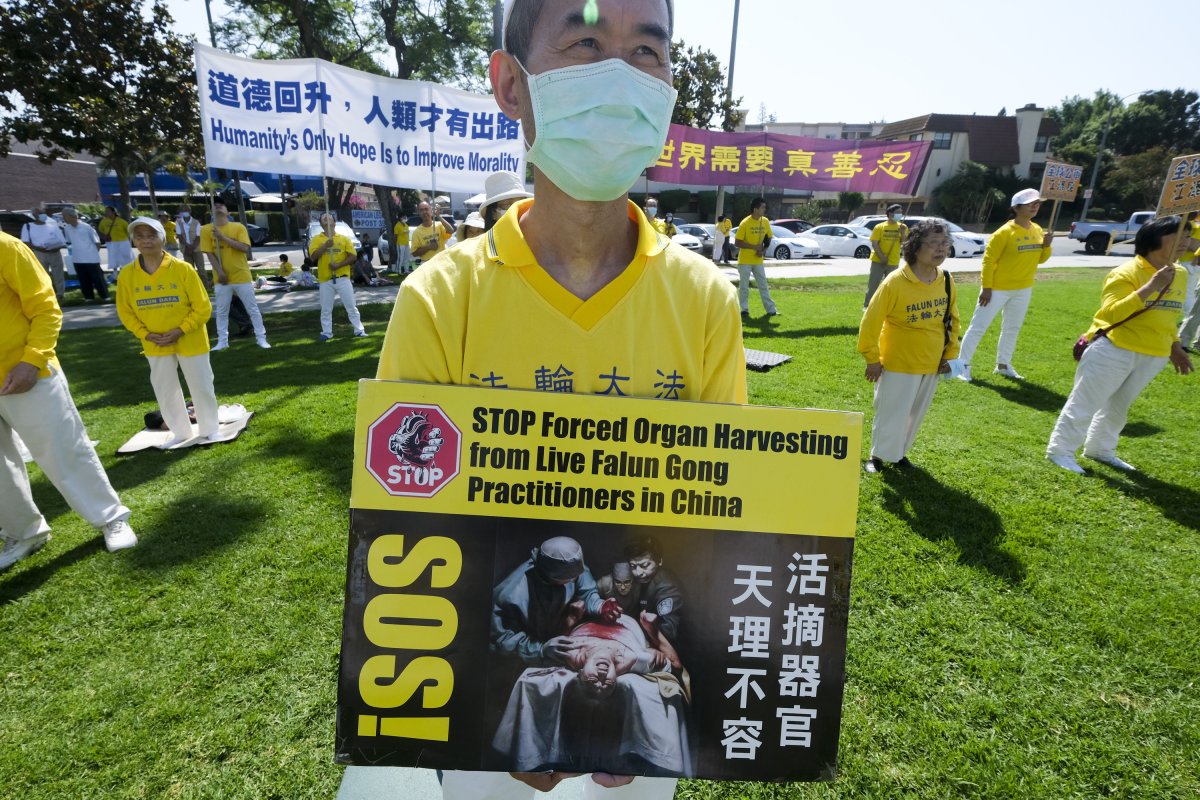US state Tennessee takes bold stand against China-linked organ transplants with new law
In a move that is likely to spark national debate and draw international attention, the state of Tennessee in the USA has passed a landmark law that prohibits health insurers from covering organ transplants linked to China.
Signed by Governor Bill Lee on March 28, the legislation, from January 1, 2026, will bar insurance providers in the U.S. state from funding any organ transplant procedure if it is performed in China or involves an organ sourced from China.
This unprecedented law places Tennessee at the forefront of a growing international outcry over China’s alleged involvement in unethical and non-consensual organ harvesting practices.
It also raises broader questions about medical ethics, international human rights, and the role of U.S. states in foreign policy matters.
A moral and legislative statement
The Tennessee legislation stems from longstanding and increasingly substantiated allegations that the Chinese government has been engaged in forced organ harvesting from prisoners of conscience, including Falun Gong practitioners, Uyghur Muslims, Tibetans, and other marginalised groups.
Though China has repeatedly denied these accusations, numerous investigative reports, testimonies from survivors, and resolutions by international bodies have painted a grim picture of a state-run organ transplantation system operating under a cloak of secrecy and coercion.
Tennessee lawmakers, citing these reports, argue that the state has a moral obligation to distance itself from practices that violate fundamental human rights.
The law is designed to ensure that no Tennessee resident or insurance company becomes complicit, even inadvertently, in supporting a system that many experts and ethicists believe is deeply flawed, if not criminal.
A ripple in the broader healthcare and ethical landscape
The Tennessee law is the first of its kind in the United States, setting a potential precedent for other states to follow. By targeting insurance funding—a crucial financial lifeline for most patients undergoing organ transplants—the legislation introduces a concrete, enforceable measure to deter participation in what lawmakers describe as “transplant tourism” to China.
While international advocacy groups have long called for restrictions on transplant tourism to China, few policies in the U.S. have addressed the issue with such specificity or consequence.
Human rights organisations such as the Victims of Communism Memorial Foundation and Doctors Against Forced Organ Harvesting (DAFOH) have praised Tennessee’s move as a “historic” and “courageous” step in confronting what they consider a humanitarian crisis.
Legal and practical implications
The law does not criminalise individuals who choose to seek transplants in China but places the financial burden squarely on them if they do so.
Health insurance companies in Tennessee will be forbidden from reimbursing the cost of any transplant procedure if it involves China in any capacity. This includes organs harvested within China or surgeries performed by Chinese facilities.
Insurance providers will likely need to implement more robust oversight mechanisms to verify the origin of organs and the location of procedures.
There could also be increased scrutiny on transplant documentation and patient disclosures. Critics argue this could introduce administrative complexity and even lead to unintended consequences for patients unaware of the full provenance of their medical treatment.
Nonetheless, the law is carefully crafted to focus on accountability without imposing criminal penalties, thereby navigating a complex intersection of personal healthcare choices, insurance practices, and international ethics.
Pushback and geopolitical ramifications
Unsurprisingly, the Chinese government has condemned Tennessee’s legislation, calling it a “hostile and politically motivated” measure rooted in “false narratives.”
China maintains that its organ transplant system has undergone major reforms and operates under strict legal and ethical guidelines, including a voluntary donor registry.
However, transparency remains a persistent issue. Unlike in many Western countries where organ donation and transplant data are publicly accessible, China has been criticised for a lack of open records, independent oversight, and verifiable consent mechanisms.
International watchdogs and medical experts have consistently found inconsistencies in China’s reported transplant numbers, fueling ongoing suspicion.
Some critics of Tennessee’s law argue that it risks politicising healthcare and entangling insurance policy with international disputes.
Others warn of potential diplomatic fallout and retaliation, particularly if other states follow suit or if federal lawmakers adopt similar language.
Yet supporters of the law argue that it reflects American values and reinforces the country’s historical commitment to human rights.
A turning point in global medical ethics
Tennessee’s action could mark a turning point in how the international medical community addresses allegations of unethical organ sourcing.
Until now, much of the response has been limited to academic resolutions, symbolic condemnations, or calls for greater transparency.
By codifying restrictions into state law, Tennessee has moved the conversation from the abstract to the actionable.
If other states, or perhaps even the federal government, consider similar legislation, Tennessee’s initiative may be seen as the first domino in a shift toward more ethically grounded transplant policy.
Countries like Israel, Spain, and Italy have already taken legislative steps to restrict transplant tourism. Now, the U.S. has a potential model within its borders.
What’s next?
As the January 2026 implementation date approaches, health insurers, hospitals, and patients in Tennessee will need to adjust to the new legal landscape, and educational campaigns, ethical guidance, and regulatory compliance frameworks will be key to ensuring that the law is effective and fair in practice.
While critics may question the efficacy or motivations behind the legislation, one thing is clear — Tennessee has sparked a national conversation about the intersection of health, ethics, and human rights. Whether other states will follow its lead remains to be seen, but the moral gauntlet has been thrown.
In a world where medical miracles often outpace moral deliberations, Tennessee’s law stands as a reminder that even in the pursuit of life-saving treatment, how we save lives matters just as much as the lives we save.













